Filter by

Re:skin
"In re:skin, scholars, essayists, and short stort writers offer their perspectives on skin--as boundary and surface, as metaphor and physical reality."--Dust jacket front flap.OCLC-licensed vendor bibliographic record.
- Edition
- -
- ISBN/ISSN
- 9780262272773
- Collation
- 1 online resource (xiii, 356 pages) :illustrations
- Series Title
- -
- Call Number
- -
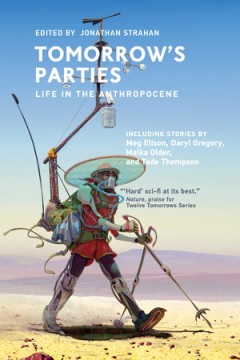
Tomorrow's Parties: Life in the Anthropocene
Twelve visions of living in a climate-changed world. We are living in the Anthropocene—an era of dramatic and violent climate change featuring warming oceans, melting icecaps, extreme weather events, habitat loss, species extinction, and more. What will life be like in a climate-changed world? In Tomorrow's Parties, science fiction authors speculate how we might be able to live and even th…
- Edition
- -
- ISBN/ISSN
- 9780262371544
- Collation
- -
- Series Title
- -
- Call Number
- 808 TOM
What Not
An early novel by Rose Macaulay about a government program of compulsory selective breeding in a dystopian future England. In a near-future England, a new government entity—the Ministry of Brains—attempts to stave off idiocracy through a program of compulsory selective breeding. Kitty Grammont, who shares the author's own ambivalent attitude to life, gets involved in the Ministry's propa…
- Edition
- -
- ISBN/ISSN
- 9780262371162
- Collation
- -
- Series Title
- -
- Call Number
- 808 mac W
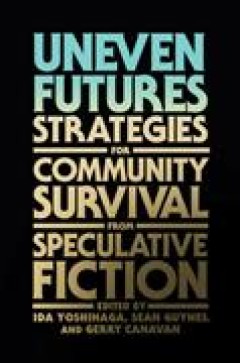
Uneven Futures: Strategies for Community Survival from Speculative Fiction
Essays on speculative/science fiction explore the futures that feed our most cherished fantasies and terrifying nightmares, while helping diverse communities devise new survival strategies for a tough millennium. The explosion in speculative/science fiction (SF) across different media from the late twentieth century to the present has compelled those in the field of SF studies to rethink the…
- Edition
- -
- ISBN/ISSN
- 9780262370172
- Collation
- -
- Series Title
- -
- Call Number
- 808 UNE
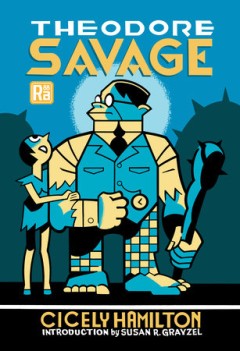
Radium Age Theodore Savage
From one of the earliest feminist science fiction writers, a novel that envisions the fall of civilization—and the plight of the modern woman in a post-apocalyptic wilderness. When war breaks out in Europe, British civilization collapses overnight. The ironically named protagonist must learn to survive by his wits in a new Britain. When we first meet Theodore Savage, he is a complacent civ…
- Edition
- -
- ISBN/ISSN
- 9780262373616
- Collation
- -
- Series Title
- -
- Call Number
- 808 HAM t
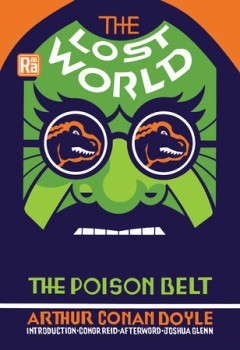
The Lost World and The Poison Bel
A heart-stopping adventure tale featuring a brilliant scientist—as insufferably pompous as Doyle's most famous character—and his unlikely trio, and its apocalyptic sequel. In 1912, the creator of Sherlock Holmes introduced his readers to yet another genius adventurer, Professor Challenger, who in his very first outing would journey to South America in search of... an isolated plateau cra…
- Edition
- -
- ISBN/ISSN
- 9780262373784
- Collation
- -
- Series Title
- -
- Call Number
- 808 DOY t
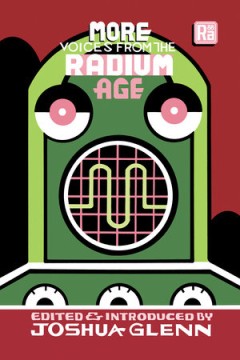
More Voices from the Radium Age
An essential collection of proto–science fiction stories that reveals the diverse literary milieu out of which the sci fi genre emerged. A planetary escape pod, an alien body-snatcher, an underground Alaskan city, and a war between the sexes in Atlantis! These are just a few of the outré elements you'll find in More Voices from the Radium Age, a showcase of proto–science fiction edited …
- Edition
- -
- ISBN/ISSN
- 9780262376075
- Collation
- -
- Series Title
- -
- Call Number
- 808 GLE m
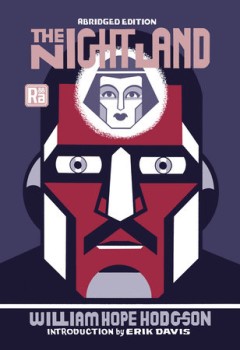
The Night Land
A romance of the far future, in which humankind has relocated underground, where it is beset by monsters from another dimension—but love leads on. In the far future, humankind's survivors huddle below Earth's frozen surface in a pyramidal fortress-city that, for centuries now, has been under siege by loathsome “Ab-humans,” enormous slugs and spiders, and malevolent “Watching Things�…
- Edition
- -
- ISBN/ISSN
- 9780262376051
- Collation
- -
- Series Title
- -
- Call Number
- 808 HOD t
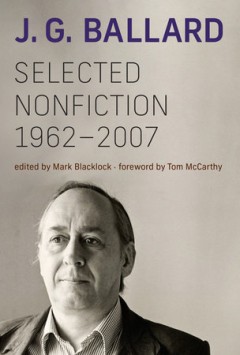
Selected Nonfiction, 1962–2007
J. G. Ballard's collected nonfiction from 1962 to 2007, mapping the cultural obsessions, experiences, and insights of one of the most original minds of his generation. J. G. Ballard was a colossal figure in English literature and an imaginative force of the twentieth century. Alongside seminal novels—from the notorious Crash (1973)to the semi-autobiographical Empire of the Sun (1984)—Bal…
- Edition
- -
- ISBN/ISSN
- 9780262375726
- Collation
- -
- Series Title
- -
- Call Number
- 800 BAL s
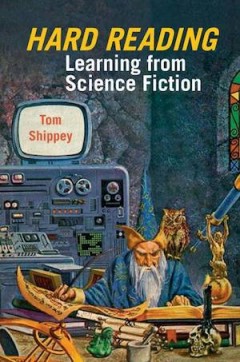
Hard Reading : Learning from Science Fiction
The fifteen essays collected in Hard Reading argue that science fiction has its own internal rhetoric, relying on devices such as neologism, dialogism, semantic shifts, the use of unreliable narrators. It is a “high-informationâ€_x009d_ genre which does not follow the Flaubertian ideal of le mot juste, “the right wordâ€_x009d_, preferring le mot imprévisible, “the unp…
- Edition
- -
- ISBN/ISSN
- 9781781382615
- Collation
- -
- Series Title
- Liverpool Science Fiction Texts and Studies
- Call Number
- 800 SHI h
 Computer Science, Information & General Works
Computer Science, Information & General Works  Philosophy & Psychology
Philosophy & Psychology  Religion
Religion  Social Sciences
Social Sciences  Language
Language  Pure Science
Pure Science  Applied Sciences
Applied Sciences  Art & Recreation
Art & Recreation  Literature
Literature  History & Geography
History & Geography